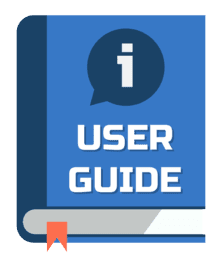Strengthen the International Relations of Indonesia in A Post Covid-19 Pandemic Era: Public Policy Perspective
Abstract
Keywords
Full Text:
PDFReferences
Anderson, G. 1996. Performance Appraisal. In: Towers B (ed), The Handbook of Human Resource Management, Second Edition. Cambridge: Blackwell. p 196-220.
Arbar, T. F. (2020). 42 Negara Ekonominya Dihancurkan Covid-19, Resesi Itu Nyata! Retrieved September 30, 2020, from https://www.cnbcindonesia.com/news/20200831070523-4-183144/42-negara-ekonominya-dihancurkan-covid-19-resesi-itu-nyata
Creswell, J. W. (2007). Qualitative Inquiry and Research Design: Choosing Among Five Approaches. Thousand Oaks: Sage Publications.
Fachriansyah, R., Gunawan, A., & Hasani, A. (2020). COVID-19: Inadequate medical supplies take toll on lives of Indonesian medical workers. Retrieved April 2, 2020, from https://www.thejakartapost.com/news/2020/03/22/covid-19-inadequate-medical-supplies-take-toll-on-lives-of-indonesian-medical-workers.html
Fang, Ja., Weedon, A., & Handley, E. (2020). Coronavirus COVID-19’s Wuhan Lockdown: A Month On.
Jatmiko, A. (2020). Tenaga Medis Ancam Tidak Tangani Pasien Corona bila APD Tak Memadai. Retrieved April 4, 2020, from https://katadata.co.id/berita/2020/03/27/tenaga-medis-ancam-tidak-tangani-pasien-corona-bila-apd-tak-memadai
Rahayu, U. (2020). Pro Kontra Rencana Vaksin COVID-19 di Indonesia. Retrieved November 11, 2020, from https://hellosehat.com/coronavirus/covid19/rencana-vaksin-covid-19/#gref
Silalahi, U. (2009). Metode Penelitian Sosial. Bandung: PT. Refika Aditama.
Sugiyono. (2008). Metode Penelitian Kuantitatif, Kualitatif dan R&D. Bandung: Alfabeta.
Tambun, L. T. (2020). Jutaan Orang Berpotensi Menganggur dan Jatuh Miskin Akibat Covid-19. Retrieved May 19, 2020, from https://www.beritasatu.com/ekonomi/620653-jutaan-orang-berpotensi-menganggur-dan-jatuh-miskin-akibat-covid19
World Health Organization. (2020a). Coronavirus Disease (COVID-19) Pandemic. Geneva.
World Health Organization. (2020b). Report of the WHO-China Joint Mission on Coronavirus Disease 2019 (COVID-19). Geneva.
Refbacks
- There are currently no refbacks.
@2017-2024
Jl. Hayam Wuruk No. 34-38 Bandung
Politeknik STIA LAN Bandung
Powered by OJS (Open Jounal Systems)


